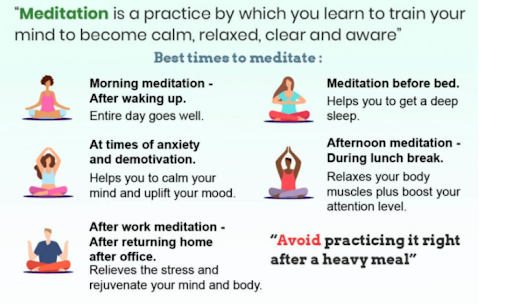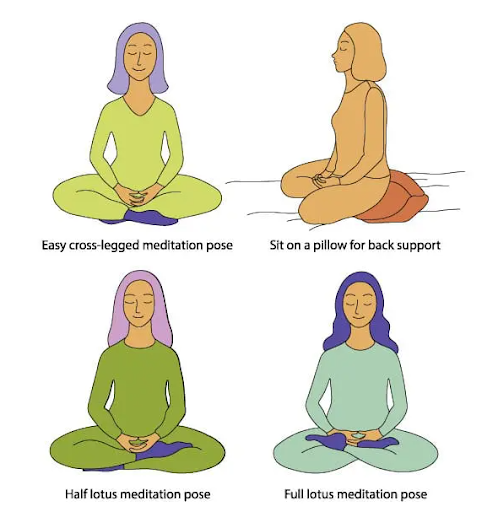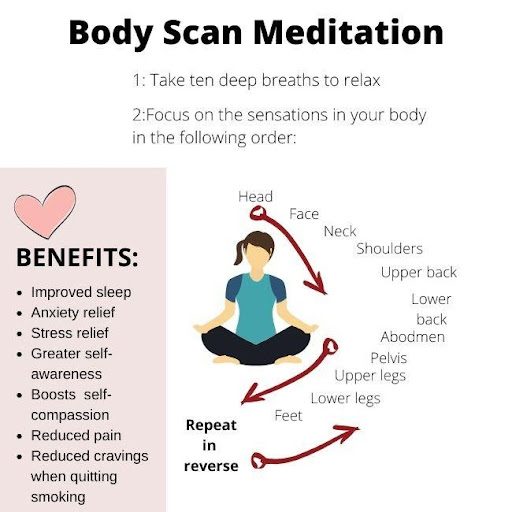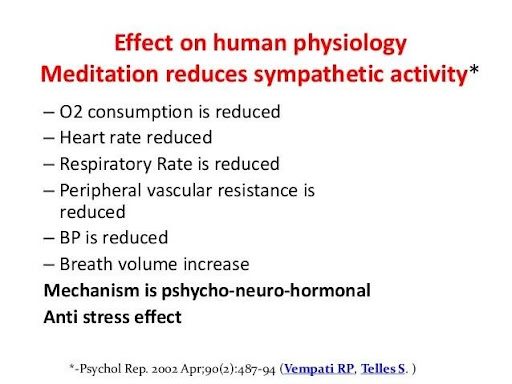We live in a world full of stress and anxiety, so questions about how to meditate for students are popular. It may seem that meditation is something that requires special skills, knowledge, or participation of experienced people. That is why the ideas of how to do meditation for students are among the top health-related topics that young people usually google. Luckily, it is not so, everyone can practice meditations at home or wherever he wants. Such methods may do lots of wholesome things like calming stress before the exam or helping to cope with depression. Let’s look closer.
5 Main Benefits of Meditation and Studying
Numerous studies show that a range of mindfulness and meditation techniques might help to lower anxiety, lower stress, improve the mental state and even prolong your life! Let’s consider the main benefits of medication and studying. Who knows, maybe after reading the info below, you will incorporate meditation for study concentration and other college-related issues.
Anti-stress effect
Probably the most frequently encountered motivation for individuals to try mindfulness meditation for studying is to reduce their stress. The hormone cortisol which is responsible for stress is normally produced in response to any changes (commonly negative) in the body. Many of the poor consequences of stress, such as the production of inflammatory molecules known as cytokines, are triggered as a result of this.
Reduces the level of anxiety
Meditation may help you feel less anxious due to its great ability to calm stress and distract you from things or episodes that caused this stress.
Meditation may reduce anxiety, according to a meta-analysis including almost 1,300 individuals. This impact was particularly prominent in individuals with the greatest levels of anxiety.
Meditation may also aid in the management of work-related anxiety. Employees who use mindfulness meditation software for 8 weeks have a clear sense of well-being, less discomfort, and less work pressure than before.

Improves general well-being
How to meditate for study? Regularly! The reality is that students who practice meditations for a long time confess that they don’t experience a bad mood as often as it was before – they don’t feel emotionally exhausted and depressed – they don’t even focus on negative thoughts and don’t feel like being upset or suppressed. Their emotional state is stable and controlled, their sleep has become deeper and with fewer episodes of nightmares.
Improves Self-Esteem And Self-Awareness
It is a great thing to know your sensations, your feelings, your features and be able to determine them and appreciate them. Meditations help to understand yourself better, to feel your potential, and to control the episodes of self-esteem lowering.
Increases Attention Span
Focused-attention meditation is similar to training in a gym (like you lift weights). It aids in the development of focusing your attention on one thing for a long time, strength and endurance. Students who meditate at least 3 times a week, do better on a visual test and have a longer attention span than those who have never meditated.
Best Meditation for Students
Now that you know the main benefits of meditation for students, let’s take a look at the most effective meditation techniques for undergrads. Here we go:
- Loving-kindness meditation (Metta). This one is great for fostering love and compassion towards your inner self or everyone around you.
- Walking meditation. Encourages mindfulness in the process of walking while focusing on every breath and step you take.
Sound bath meditation. One of the best meditation tips for students is to immerse yourself in soothing sounds or music in order to promote mindfulness and relaxation.
Easy Meditation Steps for Students Who Haven’t Done it Before
Start with this super brief set of rules:
- Set the purpose;
- Devote some time to meditation;
- Choose the best place where you can relax;
- Wear comfortable clothing;
- You can do some stretching before meditation that will help you reduce the tone in your body;
- Choose the meditation program;
- Do not eat before meditation;
- Breathe deep for a minute before meditation.
Even if you just meditate for a few minutes each day, it may be beneficial. According to one research, mindfulness meditation for studying for only 13 minutes a day for 8 weeks improved attention and memory.
When to meditate?

3 Simple Ways of Meditation for Study Concentration
This meditation approach lets you concentrate your attention on an item, sound, or feeling. Focused meditation for students for concentration may also be done without the assistance of a teacher or instructor, making it accessible to anybody with a few minutes to spare, something to concentrate on, and a peaceful environment. So, how to meditate for students?
Choose the pose you like. Here are some basic poses that contribute to better meditating.

Image Source: https://cecilieo.com/12-proven-tips-on-meditation/
Step 1. Close your eyes and listen to your breath.
According to Mayo Clinic, the goal of meditation is to concentrate on one subject while allowing other ideas to pass by. That might be intimidating for someone who has trouble focusing on just one subject (which is most of us). Listening to your breathing is an easy way to get started. Sit comfortably, so you’re not distracted by bodily discomfort.
Breathe in and out via your nose, but don’t attempt to regulate your breathing rate or depth.
Step 2: Try not to move
The majority of folks are jittery. Sitting ideally is still a strange concept, yet it may help you concentrate by allowing you to manage your physical body rather than allowing your comfort to rule you. Sit as comfortably as possible, but don’t pay attention to your breathing. Try not to move a single muscle while closing your eyes. Itches will attack you, hairs will tickle your face, and your joints will rebel.
Have a look at the picture below, and if you have never meditated before, try to follow these instructions.

Step 3. Whisper a mantra
Try introducing a mantra if you’ve become used to sitting motionless and can listen to your breathing for long periods of time without issue. A mantra is merely a syllable, word, or phrase that you repeat over and over to help you concentrate. Repeat your mantra again and over throughout your meditation session.
Useful Tips on Meditation Music for Study
You may have heard that music for meditation to increase concentration in studies is widely used by successful people. It might be beneficial to construct a playlist of the finest study music for concentration, rather than depending on the radio or a random mix on Pandora or Spotify. You may program a certain amount of uninterrupted music to function as a study timer. You’ve earned a break when the music stops playing. Everyone’s musical tastes are different, but here are some genres and strategies to consider while making the perfect study music playlist:
- Sounds of natureThe sounds of flowing brooks, birds, wind, and rain, like ambient music, are highly relaxing and provide excellent background noise. With services like Noisli, you can even make your own blend.
- Classic musicAlthough you may not want to attend a symphony performance, the relaxing sounds of classical orchestra music have been shown to improve mood and productivity, making it ideal for studying.
- Tempo musicSuch as Beethoven’s Fur Elise, with 60-70 beats per minute, tends to help kids focus longer and remember more information.
- SPA MusicAmbient noises similar to those heard on a spa treatment soundtrack may help you relax.
If you don’t enjoy classical music, electronic music such as new age and ambient EDM is an exceptional alternative. The finest music is one that has little or no words. Choose meditation music good for studying that is best for you, that you feel well to listen to. You can use various apps with music for meditation.
NOTE! The loudness of your study music is quite important. Make sure you’re not drowning out your own ideas. It’s significant to remember that it’s intended to be in the background.
Meditation to Help Study: How to make it a Habit
It takes some effort to shift the balance to give your deliberate brain greater power. Here are a few ideas for getting started.
- Place reminders for meditation all around you. If you want to practice yoga or meditate, place your yoga mat or meditation cushion in the center of your floor, so it’s easy to see as you go by.
- Renew your reminders on a regular basis. Let’s pretend you’ve decided to utilize sticky notes to remind yourself of a new goal. That may work for a week, then your autopilot brain and old patterns will take over. Try making fresh notes to yourself; vary them or make them humorous. That way, they’ll stay with you for a longer period of time.
- Make your own patterns. To provide simple reminders to move into the purposeful brain, consider a succession of “what if” messages. As an example, you may come up with the phrase “If this, then that” as a technique to enter mindfulness as you prepare to begin your workday. “Take a breath before answering the phone,” for example. Your purposeful brain will be strengthened with each deliberate activity to transition into mindfulness.
It’s not a great concern if your dog or cat enters the room, barks, and meows, and brushes up against you, or settles down on a bit of your cushion. Allow it to be. Interrupting your session to relate to their works less successfully. If that’s the case, attempt to find a strategy to keep them from interfering with your practice. Now you know how meditation helps in studies and can use this information for your self-development.
FAQs
Which meditation is best for students?
Mindfulness is known as one of the most effective types of meditation for college and university students. With a solid focus on present-moment awareness, this meditation technique helps combat stress, boost concentration, as well as hone overall well-being.








